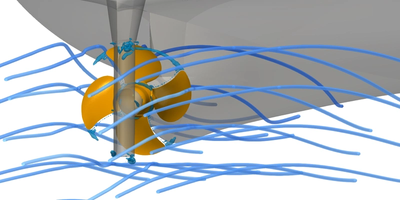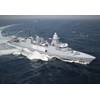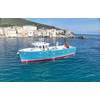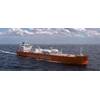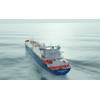SCHOTTEL Gets Canadian Funding to Develop Quiet Propulsion
German propulsion company SCHOTTEL has been selected for funding within the Government of Canada's Quiet Vessel Initiative, which supports the development of new quiet vessel technologies, designs, and operational practices, leading to less underwater noise from vessels in Canadian waters.
SCHOTTEL will assess the noise reduction achieved by the installation of a redesigned propulsion system by measuring underwater noise. The propulsion system will feature an optimized propeller design for the vessel's adapted operation profile. This data will enhance the accuracy of underwater noise prediction methods and be used to develop a prototype for a real-time on-board noise monitoring system. This will alert ship operators when their vessel exceeds critical sound thresholds and help to mitigate underwater noise impacts in critical marine mammal habitats. The Hydrodynamic Propeller Noise Monitoring System (HyPNoS) project began in June 2022 and is scheduled to be completed by March 2024.
Omar Alghabra, Canada's Minister of Transport, aid, “Our government is committed to keeping our marine ecosystems safe, and this investment will help do just that. The Quiet Vessel Initiative will advance new technologies to help reduce the impacts of noise caused by humans on marine mammals, like the vulnerable Southern Resident killer whale. Together with industry and academia, we will continue to take concrete steps to protect our endangered marine mammals and keep our waters safe.”
The Quiet Vessel Initiative is one of eight accommodation measures developed to address the concerns of Indigenous communities regarding the Trans Mountain Expansion Project. Projects funded through the Quiet Vessel Initiative will help generate the technical evidence needed to support Canada’s noise management measures in the Salish Sea and elsewhere in the country. They will also provide guidance to industry, academia, and the International Maritime Organization (IMO) to influence future quiet vessel design standards and adoption.


